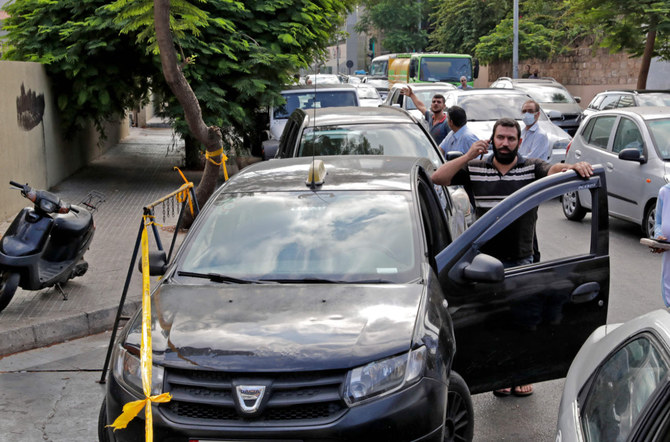
By Najia Houssari — arabnews.com — BEIRUT: Three radio stations and a TV channel in Lebanon have been forced to temporarily suspend broadcasting due to the country’s fuel crisis, with a government minister saying she had requested support for media outlets but to no avail. Information Minister Manal Abdel Samad said: “Even Radio Liban, which speaks on behalf of the state, stops broadcasting whenever the electricity is cut off from the transmission centers spread across all Lebanese territories, and the government-owned Télé Liban (TL) will gradually stop broadcasting. The TL administration said that broadcast is being suspended between midnight and seven in the morning in order to save on fuel.” She added that she had “sent letters to the minister of energy and the army commander, requesting support for official and private media institutions, but neither responded.” Radio Sawt El-Shaab, which is not affiliated with any political party, announced on Friday evening that it would temporarily suspend its programs due to the fuel crisis and because its guests could not reach its headquarters in Beirut. Radio Al-Sharq and Future TV, both of which are affiliated with the Future Movement political party, also suspended broadcasting. Radio Al-Sharq’s director, Kamal Richa, told Arab News: “The radio station, which was established in 1994, has never stopped broadcasting. But we had to turn off our generators due to the shortage of diesel, and the broadcasting stopped a few days ago.”
Both outlets are owned by former Prime Minister Saad Hariri. They faced a severe financial crisis years ago that led to a large number of employees being laid off and TV content being limited to shows from the archive, while 22 employees remain at the radio station. Richa added: “The radio administration secured on Saturday a quantity of diesel and informed us that we can resume broadcasting on Sunday, starting at seven in the morning. However, we might have to stop broadcasting again, as nothing is guaranteed in Lebanon.”
On Tuesday, Lebanese Army Command announced that “a three-day crackdown” carried out by units in various regions had resulted in the seizure of 4,392,725 liters of gasoline and 221,140 liters of diesel that had been stored for smuggling or for sale, either on the black market or at high prices after fuel subsidies were lifted. “The owners of these quantities were obliged to either sell them at the subsidized price or they would be seized and given to hospitals, bakeries, and private generators that have stopped working or are about to stop,” it said. The Audio-Visual Media Workers Syndicate appealed to Abdel Samad “to seek with those concerned to find a special mechanism that allows workers to obtain gasoline, to facilitate the task of media professionals.”
The minister said: “I seek to give priority to the media after the health sector, as we did in the COVID-19 vaccination campaign. But the crisis is too severe this time.” Information International, a research firm in Beirut, said the lack of fuel and resorting to the black market or queuing for hours at stations had led to “a significant increase” in the cost of transport. “It now costs 25 to 50 percent of the value of the worker’s monthly salary, depending on the distance between their residence and their workplace.” A week ago, the percentage of employees and even military personnel who were able to make it to work decreased because of the fuel shortage. Darkness prevails in residential neighborhoods because of severe electricity rationing.
A source in the Ministry of Finance told Arab News: “Attempts are being made to maintain some subsidies, despite the parliament’s refusal to allow the Central Bank to use the mandatory reserve to subsidize fuel. “There is a tendency to determine the pricing of fuel based on the rate of LBP8,000 to the dollar, instead of LBP3,900. This means (a 20-liter canister of) gasoline would cost approximately LBP150,000, provided that the Lebanese state bears the price difference between this price and the one based on the Central Bank’s Sayrafa platform rate of LBP16,000 to the dollar, i.e. an additional LBP8,000. “This requires exceptional approval and a decree signed by the Ministry of Finance, the prime minister and the president. The cost of subsidies shall be covered by an advance to the Ministry of Finance, allocated in the 2022 budget. If this solution is achieved — despite the difficulties — quantities of fuel could be introduced by mid-next week, although it incurs more debts to the state.”



